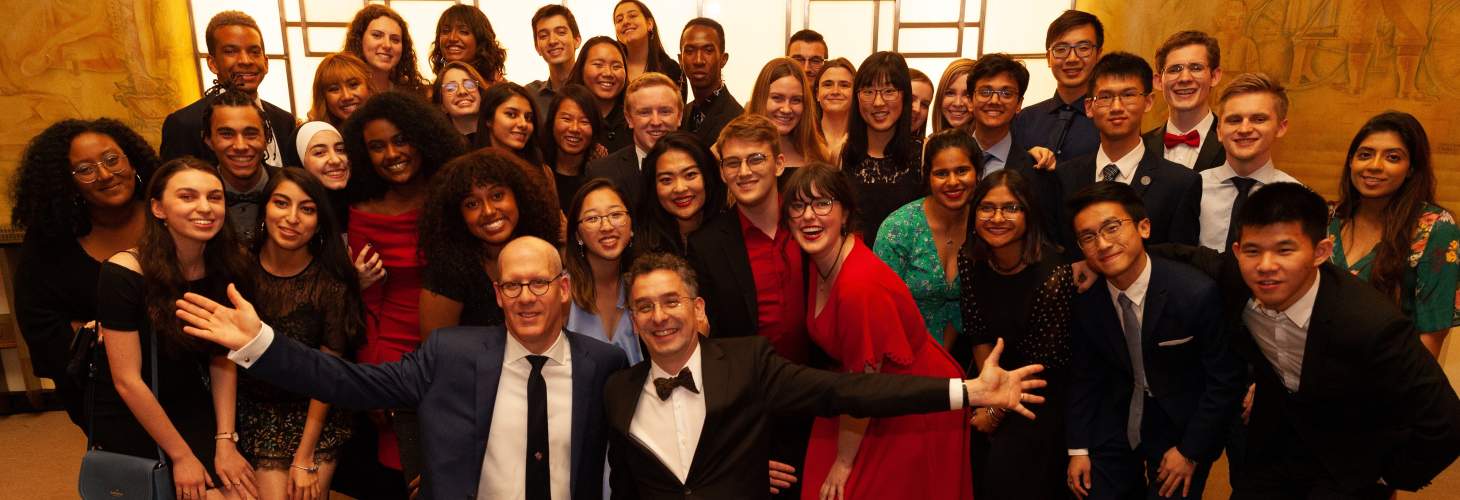
Alumni of Influence
University College Alumni of Influence Award
The University College Alumni of Influence Award recognizes our diverse alumni and the exceptional ways in which they impact the College, the University of Toronto and our communities.
2013
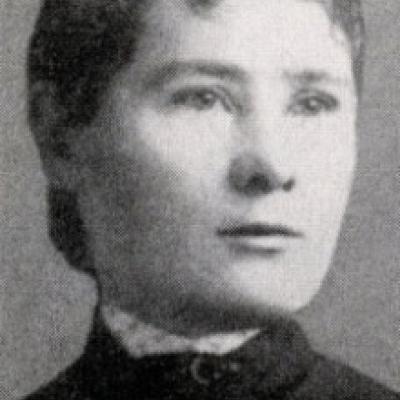
Pioneers Mary Bell Bald, Catherine Brown, Margaret Brown, Ella Gardiner and Margaret Langley were the first women students to attend lectures at University College, starting on October 6, 1884; they graduated in 1885.
The hard-won battle for admission was initiated more than a decade earlier by trailblazer Henrietta Charles. As a female, she was not permitted to attend classes at UC and resorted to a private tutor, passing exams and graduating in 1870.
While women were permitted to attend lectures by 1884, they continued to face obstructions and inequities. Female students were prohibited from using the reading room and library catalogues and from standing at bulletin boards in the halls; class notices were sent to their private waiting room. Women required the president’s permission to join clubs and did not get their own residence or gymnasium until 1905 and 1959, respectively.
In spite of these obstacles, Bald, Gardiner, Langley and the Brown sisters blazed the trail for generations of female UC students to come.
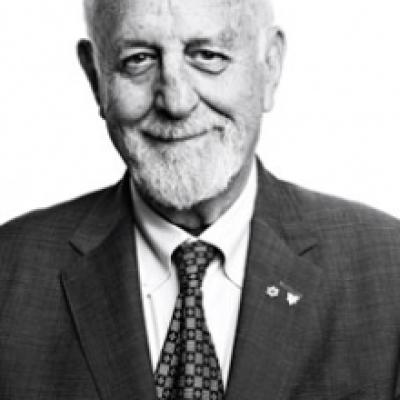
Entrepreneur and philanthropist Avie Bennett is the founder of First Plazas Inc., his personal, commercial real estate company. He is credited with pioneering the retail plaza concept in Canada, opening the nation’s first strip malls in Toronto in the early 1950s.
Bennett is the former chair of the venerable Canadian publishing house, McClelland & Stewart Ltd.; he donated 75 per cent of the company to the University of Toronto in 2000. That same year, he also donated The Canadian Encyclopedia (electronic version) to the Historica Foundation of Canada and co-chaired the Canadian Democracy and Corporate Accountability Commission.
In addition to his business interests, Bennett is a driving force in the community, education and the arts. He is a past chair of the Historica-Dominion Institute and a former president of the International Readings at Harbourfront. He has served York University as chancellor; the National Ballet of Canada, including its foundation and ballet school; the Governing Council of the University of Toronto; the Schulich Board of Business; the United Way of Greater Toronto; and the Luminato arts festival.
For his distinguished contributions, he was named a Companion of the Order of Canada, as well as a Member of the Order of Ontario, and was awarded the Canada 125 Medal in 1992. He holds three honorary doctorates.
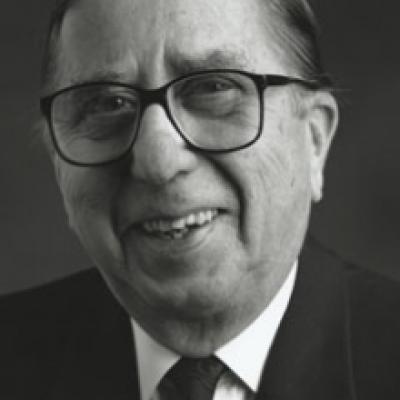
Lawyer and jurist Charles Leonard Dubin was a brilliant lawyer who rose to the position of Chief Justice of Ontario. Born in Hamilton, he completed undergraduate studies at UC before graduating from Osgoode Hall Law School. He practised both criminal and civil law, representing clients ranging from unions to corporations, bookies to athletes, as well as former prime minister John Diefenbaker. A legal superstar with a reputation for ethics and excellence, Dubin was asked to sit on the Ontario Court of Appeal by prime minister Pierre Trudeau in 1973; he ascended to Chief Justice in 1993.
He served on several royal commissions, notably leading the Dubin Inquiry into the use of performance-enhancing drugs in sports, struck after Canadian sprinter Ben Johnson was stripped of his gold medal for testing positive for steroids at the 1988 Olympic Games. He also led inquiries into aviation safety and hospital procedures in Canada.
For his tremendous contributions to the legal profession and justice system, Dubin was honoured with three honorary doctorates, and named an Officer of the Order of Canada as well as a Member of the Order of Ontario.
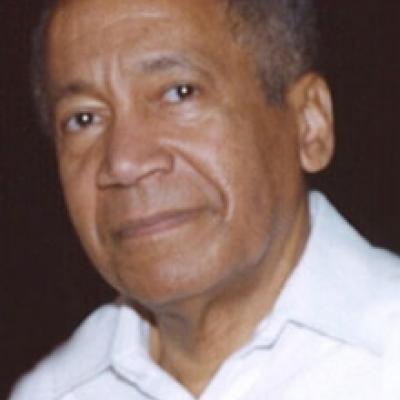
Keith Ellis is a renowned scholar, translator and critic of Latin American literature. Professor Emeritus of Latin American Literature at U of T, he specializes in poetry and short stories and is a leading authority on the poetry of the Caribbean writer, Nicolás Guillén.
His teaching and scholarly careers, which have included the production of some 20 books and more than 100 articles, have brought him many distinctions, including the Canadian Association of Hispanists Prize for best academic book for Cuba's Nicolás Guillén: Poetry and Ideology. He is a recipient of the Medal of the City of Poitiers, the Andrés Bello Medal from the Ministry of Culture of Venezuela and the Medal of the University of Havana.
In 1988, Ellis became the first Black person to be named a Fellow of the Royal Society of Canada, a peer-elected group of the top professors in the country. In 1998, he made history by becoming one of the few scholars to be awarded an honorary doctorate by the University of Havana.
Beyond the academy, he has served the Union of Writers and Artists of Cuba; the Casa de las Americas Literary Prize; the Canadian-Cuban Friendship Association; and the Royal Ontario Museum.
In his retirement, he has produced several bilingual anthologies on the theme of integrating Spanish- and English-speaking Caribbean cultures. A winner in 1957 of University College’s Norma Epstein Award for short story, Ellis’s own poems have also appeared in anthologies and journals in various countries and in several languages.
A noted Canadian mathematician, John Charles Fields is the founder of the prestigious Fields Medal for outstanding achievement in mathematics.
Born in Hamilton, Ontario in 1863, he graduated from University College before leaving for the United States to study at Johns Hopkins University, where received his PhD in 1887.
Disillusioned with the state of mathematical research in North America at the time, he left for Europe in 1891, where he associated with some of the greatest mathematical minds of the time. He began publishing papers on a new topic, algebraic functions, which would prove to be the most fruitful research field of his career.
Returning to Canada in 1902 to lecture at the University of Toronto, Fields worked tirelessly to raise the stature of mathematics within academic and public circles. He helped establish the National Research Council of Canada, as well as the Ontario Research Foundation. He was elected Fellow of the Royal Society of Canada in 1907 and Fellow of the Royal Society of London in 1913.
He is best known for his development of the Fields Medal, considered to be the Nobel Prize in mathematics. Created in 1936, it is awarded to two to four mathematicians under the age of 40 who have made important contributions to the field. The Fields Institute at the University of Toronto is named in his honour.

Eminent philosopher David Gauthier is best known for his social contract theory of morality. In addition to moral theory, his work explores the history of political philosophy, with special attention to Hobbes and Rousseau, and the theory of practical rationality.
In 1979, he was elected a Fellow of the Royal Society of Canada. From 1958 to 1980, he was a member of the Department of Philosophy at the University of Toronto, serving as chair from 1974 to 1979. Since 1980, he has been a member of the Department of Philosophy at the University of Pittsburgh, where he is now Professor Emeritus. He served as chair from 1983 to 1987 and was appointed a Distinguished Service Professor in 1986. He has been a senior research fellow at the Center for Philosophy of Science and has held visiting appointments at UCLA, UC Berkeley, Princeton, UC Irvine, and the University of Waterloo.
His principal non-philosophical interest, arising from his observation of trolley cars beginning at an early age, is in what is now called light rail transit. When much younger, he was an unsuccessful candidate for election to the Canadian House of Commons, an occasional newspaper columnist and a writer on public affairs.
Several of Gauthier's students are now important moral, political and legal philosophers in the United States and Canada. Asteroid (15911) Davidgauthier is named after him.
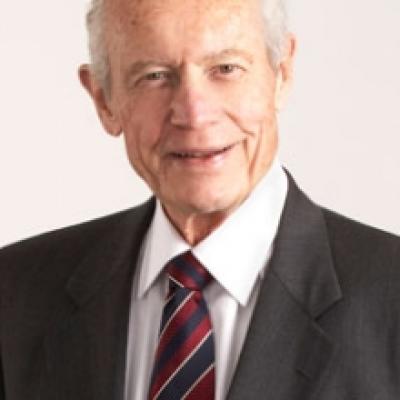
Investment magnate and philanthropist C. Warren Goldring was the co-founder and honorary chair of AGF Management Ltd., one of Canada's premier investment management companies. A pioneer in the Canadian mutual fund industry, he pursued a long and distinguished career as a portfolio manager and influential builder in the investment management business. Prior to co-founding AGF, he spent 16 years at the brokerage firm, Fry & Co., and started his career at Sun Life Assurance Company.
Goldring served as a president of the Toronto Society of Financial Analysts and as a member of the Granite Club, National Club, Empire Club, Rosedale Club and Ticker Club. He was a member of the Attorney General's committee on securities legislation in 1965, which paved the way for the securities regulations we have today. He also served as the president of the Investment Funds Institute of Canada from 1974 to 1976.
In the community, he served as chair of the University College Committee, University of Toronto; supporter of the Canada Institute at the Woodrow Wilson Center in Washington and the C. Warren Goldring Annual Lecture on Canada-U.S. Relations; member of the board of governors, Council for Canadian Unity; and director of Operation Dialogue, a charitable organization designed to inspire passionate discussion among Canadians about what it means to be Canadian.
For his myriad accomplishments, he received the Golden Jubilee Medal of Queen Elizabeth II, as well as the Career Achievement Award from the Canadian Investment Awards and was recognized as Entrepreneur of the Year by Ernst & Young.
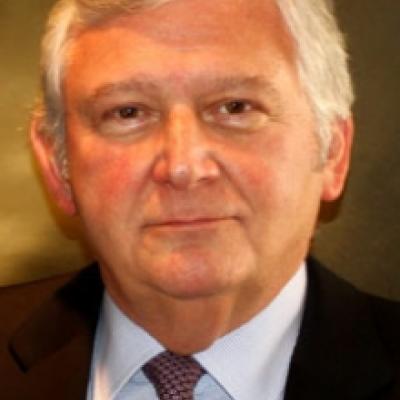
Renowned criminal lawyer Brian Greenspan is a partner in the Toronto firm Greenspan, Humphrey, Lavine. He has taught the administration of criminal justice at Osgoode Hall Law School and was a special lecturer in criminal law at U of T’s Faculty of Law. He is a frequent speaker at law schools and continuing legal education programs throughout Canada.
Greenspan has served as president of the Criminal Lawyers’ Association (Ontario) and as founding chair of the Canadian Council of Criminal Defence Lawyers. He was a member of the Ontario Judicial Appointments Advisory Committee, a director of the Advocates’ Society and a member of the Ontario Securities Commission enforcement advisory committee.
Currently, he is a member of the Ontario Regional Committee of the Supreme Court Advocacy Institute, a member of the board of directors of the Association in Defence of the Wrongly Convicted Foundation, a member of the board of directors of Book Clubs for Inmates and a member of the Society for the Reform of the Criminal Law.
Among his many honours, Greenspan was awarded the Douglas K. Laidlaw Medal for excellence in oral advocacy in 2002 and received the G. Arthur Martin Medal for contributions to criminal justice in Canada in 2010. He holds an honorary doctor of laws from the Law Society of Upper Canada, and was awarded the Alumni Gold Key for Achievement by Osgoode Hall. He was also presented with the key to the city of his hometown, Niagara Falls, Ontario, in 2013.
Greenspan has been recognized in The International Who’s Who of Business Lawyers in Business Crime and The Best Lawyers in Canada since their inception and has been twice named as one of the 25 Most Influential Lawyers in Canada by Canadian Lawyer Magazine.
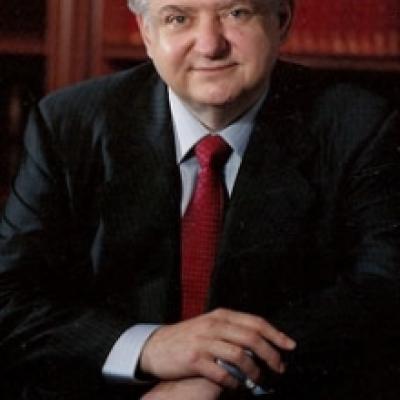
High-profile lawyer Edward L. Greenspan is a senior partner in the Toronto law firm, Greenspan Partners. After undergraduate studies at UC, he earned a law degree at Osgoode Hall and began his practice in 1970, receiving his Queen’s counsel designation in 1982. While he is best known for defending people charged with criminal offences, he also acts in Securities Act investigations and prosecutions, income tax investigations, coroners’ inquests and defends people charged under the Occupational Health and Safety Act and the Environmental Protection Act. He taught criminal law at U of T’s Faculty of Law for 28 years and for 18 years at Osgoode Hall Law School at York University.
Greenspan has been a director of the Canadian Civil Liberties Association since 1981 and has served as a vice-president since 1989. He has been a board member of the Canadian Shaare Zedek Hospital Foundation since 1988 and a member of ORT Canada (Toronto chapter) since 1996. Since 2002, he has been a member of the Judicial Ethics Advisory Committee.
Greenspan was awarded the G. Arthur Martin Medal for outstanding contribution to Canadian criminal law in 2001. He was the recipient of the Maurice Coady Prize at U of T in 1965, and was awarded the Canada 125 Medal in 1992, as well as the Advocates’ Society Medal in 2009. He holds four honorary doctorates and this year, he was awarded the Law Society Medal, the highest honour that can be bestowed upon an Ontario lawyer.
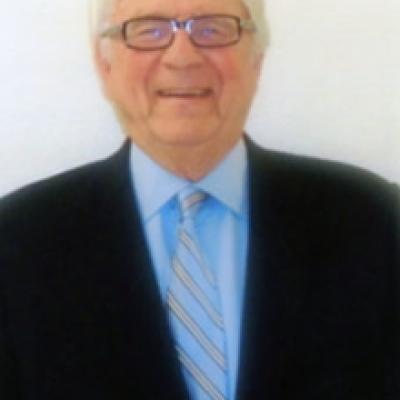
Allen Linden is a recently retired judge for the Federal Court of Appeal. After graduating from UC, he attended Osgoode Hall Law School, then the University of California, Berkeley, where he earned his doctorate of laws. He was called to the bar in Ontario in 1960 and was an associate at Levinter, Grossberg, Dryden & Co., until he left to teach law at Osgoode Hall from 1961 to 1978. He has taught law in the U.S., Australia and the U.K., and has written several books and articles on tort law.
Linden acted as executive director of the Canadian Institute on the Administration of Justice from 1974 to 1978, when he was appointed to the Superior Court of Ontario. He served as president of the Law Reform Commission of Canada from 1983 to 1990; he was then appointed to the Federal Court of Appeal.
He authored a statistical study on compensation for car accidents which led the province of Ontario to adopt a no-fault auto insurance plan. He also initiated a study on compensation for victims of crime that influenced the Ontario government to enact a public scheme to furnish compensation to victims of violent crime. Prior to his elevation to the bench, he served as a consultant in the litigation by Canadian thalidomide children seeking compensation from the company that produced the drug.
In 2012, he was awarded the province's David Walter Mundell Medal for excellence in legal writing in honour of his distinguished contribution to law and letters.
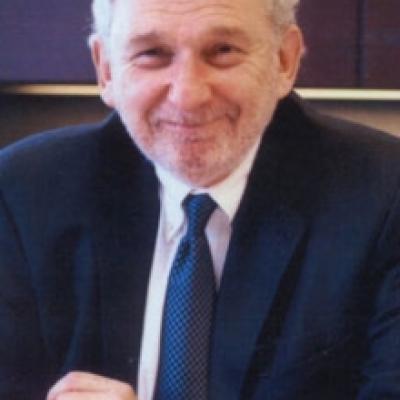
Called to the Bar of Ontario in 1966, lawyer and judge Sidney Linden was in private practice until 1980. Between 1980 and 1985, he was the first police complaints commissioner for metropolitan Toronto and chair of the Police Complaints Board. Between 1985 and 1987, he was director of the Canadian Auto Workers Prepaid Legal Services Plan, the first privately funded, national prepaid legal service plan in Canada. In 1987, he was appointed Ontario's first Information and Privacy commissioner.
In April 1990, he was appointed chief justice of the newly reorganized Ontario Court of Justice (provincial division). During that time, he was co-chair of the Ontario Judicial Council and a member of the board of the National Judicial Institute. Linden also served as chair of the board of Legal Aid Ontario from 1999 to 2004, and as commissioner of the Ipperwash Public Inquiry from 2004 to 2007.
Legal Aid Ontario created the Sidney B. Linden Award, named after their first chair of the board of directors, to honour exceptional individuals who have demonstrated a commitment to helping low-income people, and who have given their time and expertise toward ensuring access to justice in Ontario. Linden was also recognized by the Canadian Institute for the Administration of Justice with a Justice Award. In 2009, he was awarded an honorary doctor of laws by the Law Society of Upper Canada.
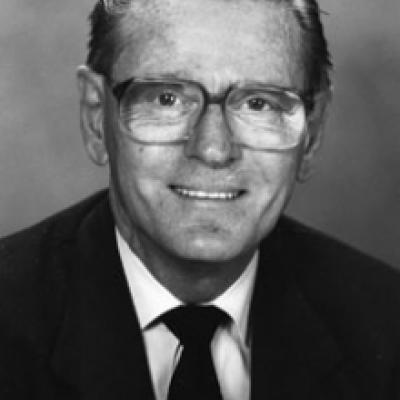
Economist, higher education leader and Rhodes Scholar Ian Macdonald has had a distinguished career in both academia and government. He served as a professor of economics at U of T and dean of men at University College, before entering the public service in the Government of Ontario as chief economist and assuming a number of increasingly important, ministerial positions in economics and intergovernmental affairs.
In 1974, he was named president of York University, a position he held with distinction for more than 10 years. Macdonald is now President Emeritus of York University, as well as a professor of public policy and economics, and director of the Master of Public Administration program.
In the community, Macdonald has served several Canadian and international companies and institutions, including: the AGF Companies; McGraw-Hill Ryerson Ltd.; the Canadian Rhodes Scholars Foundation; the Council of the Royal Commonwealth Society; the International Association of Universities; the Inter-American Organization for Higher Education; the Canadian Hockey Association; and the Empire Club of Canada, among many others.
During his career, Macdonald has received many honours, including the Governor General's Medal; the Centennial Medal; the Queen's Silver Jubilee Medal; Officer of the Order of Canada; Citation of Merit, the Court of Canadian Citizenship; the Medal of the Dominican Republic; the Canada 125 Medal; the Award of Merit of the Canadian Bureau for International Education; Honorary Life Member, the Canadian Olympic Association; the Queen’s Golden Jubilee Medal; and the Vanier Medal, plus many other accolades.
In 2005, he was honoured by the Government of Ontario with the creation of the H. Ian Macdonald Visiting Economist position in the Ministry of Finance and by York University with the George Tatham Award in recognition of a lifetime of teaching excellence.